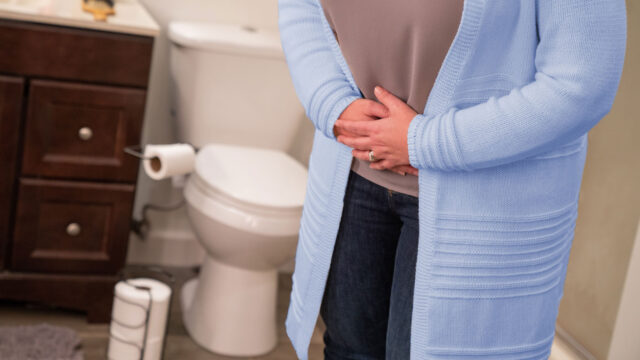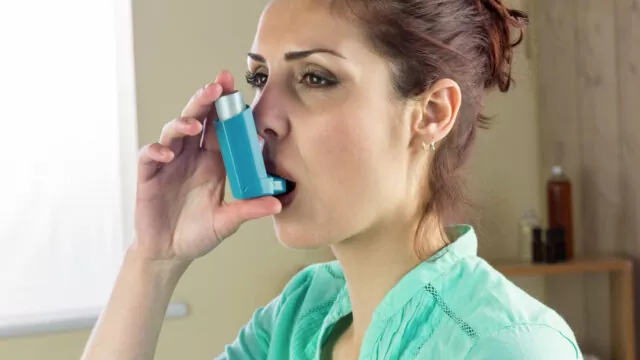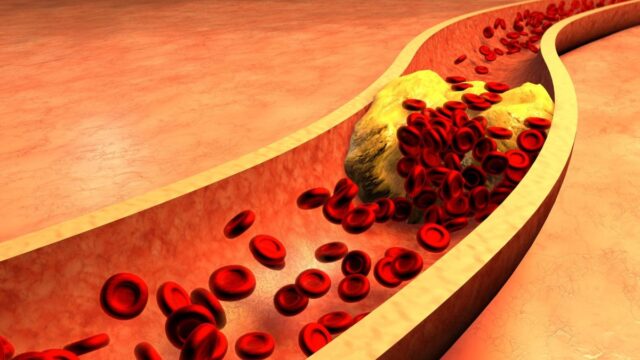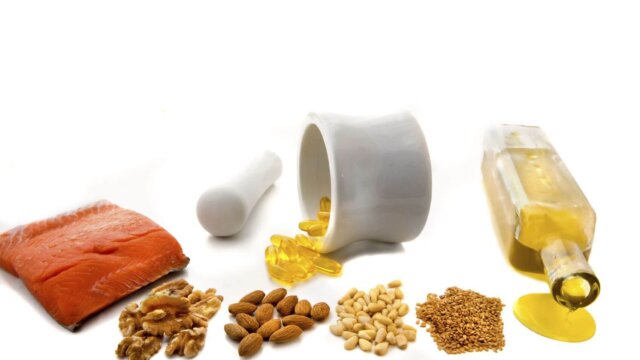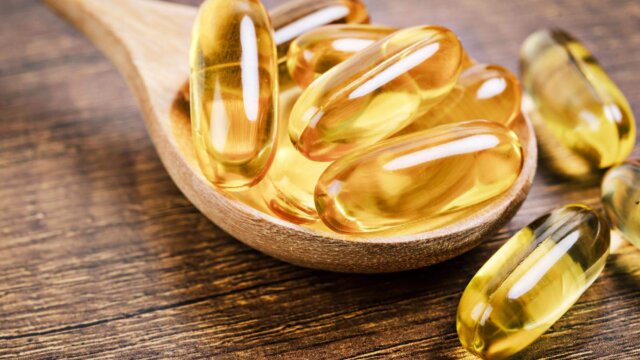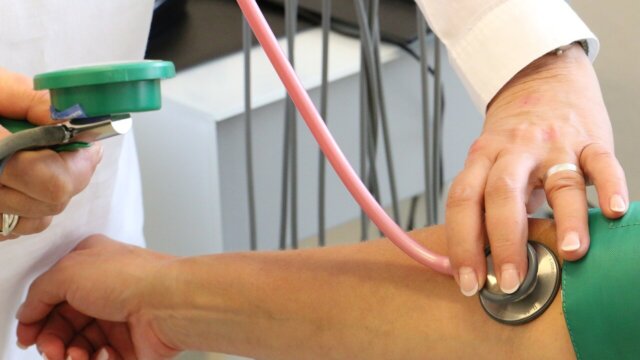FTC disclaimer: This post may contains affiliate links and we will be compensated if you click on a link and make a purchase.
Are you curious to know the benefits of aloe vera for acne? Aloe vera is used for centuries, and a lot of research has shown a positive impact of aloe vera against acne.
Aloe vera belongs to a succulent family that has excellent antibacterial and astringent properties. It has proven to help in the natural healing of all types of skin abnormalities.
Its excellent astringent properties help in the absorption of excess sebum produced in the skin pores and thus reduces skin inflammation and irritation.
Aloe vera is always gentle to the skin that aids in reducing acne and fading acne marks.
Is aloe vera good for acne?
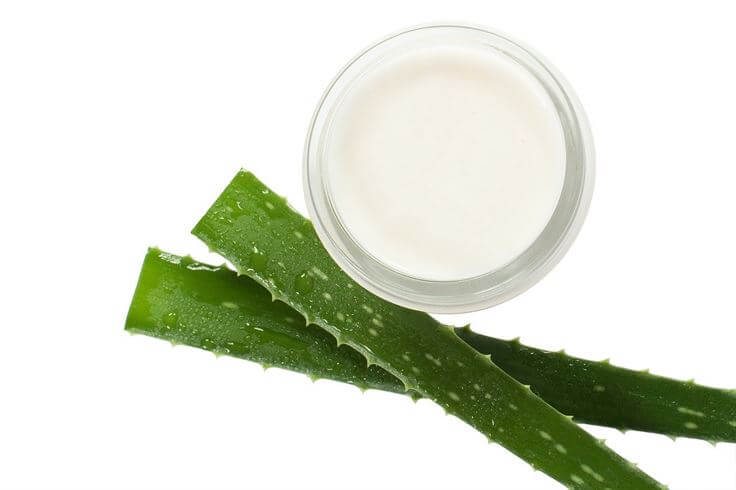
Aloe vera is a popular natural remedy for many skin problems. But, does Aloe vera help in getting rid of acne?
Many research studies were conducted to evaluate the anti-acne efficacy of aloe vera. So, let’s look into the aloe vera properties that make aloe vera an essential ingredient in acne treatment.
Aloe vera antioxidant and antibacterial properties
Aloe vera antioxidant and antibacterial properties prevent damages caused by bacteria. It also facilitates the elimination of impurities, dead cells, and sebum.
One study has backed the antioxidant and antibacterial properties of aloe vera. It revealed that it helps in controlling the production of bacteria causing acne.
Aloe vera boost effectiveness in the treatment of acne
Some research was conducted to know the effectiveness of aloe vera in acne medication.
It was proven that there was a boost in the effectiveness of acne medication when aloe vera was added to it.
In one study, it has combined aloe vera with tea tree oil and propolis to compare erythromycin cream. The result has indicated that aloe vera formulation has a more significant impact on acne.
In another study, Aloe vera is combined with tretinoin and is compared with tretinoin alone in acne treatment. The combination of tretinoin and aloe vera has shown a significant improvement in mild to moderate acne treatment.
Aloe vera anti-inflammatory properties
Aloe vera anti-inflammatory properties have shown effectiveness in healing acne lesions. It also helps in reducing the swelling, tenderness, and pain.
Also, it has wound-healing effects, so it can help in reducing acne blemishes.
Moreover, the study conducted by the Journal of Ethnopharmacology has revealed that the extract of aloe vera gel has anti-inflammatory properties that inhibit the growth of bacteria.
How to use aloe vera for acne
Here, we will discuss the different methods we can use aloe vera for acne. Not all methods will work for everyone because it depends on skin condition or the medication the person is currently taking.
Aloe vera is very mild to the skin and may not show a quick result. Since there is no specific guideline of strength or dosage, people should always consult a doctor if they are under medication.
Pure aloe vera from a plant
Most people keep asking whether pure aloe vera is good for acne. Traditionally, aloe vera is always helped in the treatment of acne breakout.
According to research, due to antioxidants, antibacterial, and anti-inflammatory properties, it is potent in fighting against acne.
How to use it?
You can directly use aloe vera to the affected area and leave it overnight. Wash your face in the morning. Repeat it, and you will see the differences in 4-5 days.
You can also buy pure aloe vera gel online.
Aloe vera and tea tree oil for acne
Tea tree oil possesses anti-inflammatory, antiviral, antibacterial, and antifungal properties. It has shown very useful in the treatment of acne.
But, a study has shown that when tea tree oil is mixed with aloe vera gel, its effectiveness has increased in acne treatment.
How to use it?
You can mix aloe vera with a 2-3 drop of tea tree essential oil. Apply it to the affected area and leave it overnight. Wash it in the morning.
You can get pure tea tree essential oil and pure aloe vera gel online.
Aloe vera and coconut oil for acne
Coconut oil is beneficial in the treatment of all types of skin problems. It contains lauric acid that has shown very effective in fighting against acne.
How to use it?
You can mix one tablespoon of coconut oil with a half tablespoon of aloe vera gel. Mix it well and apply it all over the face. Leave it overnight and wash it in the morning.
For a scrub, you add one tablespoon of sugar to it and rub it on your face to remove dead cells. Wash it after 10 minutes and pat it dry.
Aloe vera and vitamin E for acne
Vitamin E oil is rich in antioxidant that works perfectly with aloe vera in eliminating acne.
It also hydrates your skin and makes your skin glow naturally.
How to use it?
You can take 2-3 vitamin E capsules and burst the pill to remove the oil. Now, mix it with one tablespoon of aloe vera gel. Apply it all over the face. It will act as a moisturizing cream. Repeat it every day.
Aloe vera and honey for acne
Honey also has similar properties to aloe vera, such as antibacterial and anti-inflammatory. It helps in soothing the acne and prevents the growth of bacteria.
Moreover, Manuka honey is considered more effective in treating acne compared to other honey.
How to use it?
You can mix one tablespoon of aloe vera with two tablespoons of honey and make a face pack. You can also add a pinch of cinnamon to it. Apply this face mask to your face and leave it for 10 minutes. Afterward, wash your face with warm water.
Witch hazel and aloe vera for acne
Witch hazel is a medicinal plant that can be used in various ways to treat skin-related issues. Its main properties are to remove excess oil from your skin and tighten the skin’s pores.
As a result, people struggling with acne have found Witch hazel as an essential ingredient in the treatment of acne.
Therefore, when witch hazel is used with aloe vera for acne treatment, it removes excess oil from the skin and then hydrates and calms the skin.
Unfortunately, there are no studies that can point out this as a winning combination.
However, you try Witch hazel and aloe vera skin toner that can control acne and oil production. It is also beneficial in reducing redness and inflammation.
Turmeric and aloe vera for acne
Turmeric has antimicrobial properties that help in reducing breakouts. It is also very effective in preventing acne treatment because it removes excess oil from the skin.
Moreover, it has anti-inflammatory properties that can help in reducing the size of the pores.
Also, due to vitamin C’s presence in turmeric brightens the dark spots and helps reduce discoloration.
When turmeric is combined with aloe vera, it works excellent in spot treatment and brightens your skin.
One study has shown that turmeric exhibits anti-inflammatory, antimicrobial, and antioxidant properties. The studies evaluated the effect of curcumin, the active compound present in turmeric that inhibits acne’s growth due to its anti-inflammatory properties.
Overall, the evidence has proven the therapeutic behavior of turmeric for skin health.
How to use it?
You can mix one teaspoon of aloe vera with 1/4 teaspoon of turmeric. After that, apply it to your face and leave it for 30 minutes. Rinse well and repeat as required.
Aloe vera gel and jojoba oil for acne
Jojoba oil is proven to be very useful in the treatment of acne and in reducing skin lesions.
Also, jojoba oil makes it great in solving skin issues from acne to dryness to irritation.
A study has revealed that jojoba oil has anti-inflammatory properties that can treat and reduce acne.
In a study, it has been shown that by applying clay jojoba oil facial mask to 194 participants, 133 participants returned with less acne. Because of jojoba oil’s anti-inflammatory properties, the skin lesions were reduced significantly after treatment.
Another study has suggested that the waxy properties of jojoba oil improved skin disorders such as acne.
How to use it?
Mix one teaspoon of jojoba oil with one teaspoon of aloe vera gel and apply it all over the face. Keep it overnight and reapply if needed.
Aloe vera and lemon juice for acne
Lemon juice contains citric acid that has shown beneficial in the treatment of acne.
But, when lemon juice is mixed with aloe vera, it stops the irritation caused by citric acid present in lemon juice.
How to use it?
You can mix eight parts of aloe vera with one part of lemon juice and apply it all over the face. You can leave it for 10 minutes and then wash it off thoroughly.
Best aloe vera face wash for acne
TruSkin Cleanser with vitamin C and organic aloe vera
It contains vitamin C, organic aloe vera, MSM, and Rosehip oil. Further, it is a foaming face wash to deep clean pores and prepares skin for serums and moisturizers.
Moreover, it prevents breakouts and acne scars. Also, free from harmful ingredients. It also comes with 90 days money-back guarantee.
For more information, you can click here.
Insta natural vitamin c cleanser
It contains vitamin C with natural organic aloe vera. Also, it gently clear and unclog pores, breakouts, and blemishes.
Moreover, it is free from harmful ingredients such as parabens, SLS/SLES, mineral oil, formaldehyde releasers, synthetic dye petroleum, polyethylene glycol, and many more unsafe preservatives.
For more information and details, you can click here.
Best aloe vera soap for acne
Aloe vera & Calendula soap
It has used organic and natural ingredients. The main ingredients they have used are organic aloe vera, organic calendula, and organic turmeric. Suitable for acne-prone skin.
Have a look at aloe vera and calendula soap here.
Is aloe cream good for acne?
Yes! Aloe cream is suitable for acne-prone skin. You have to look for pure aloe vera cream that is free from any artificial ingredients and colors.
The Natural Republic New Soothing Moisture Aloe Vera gel
It is a gentle, soothing, and hydrating gel. It is rich in 92% certified organic aloe vera and free from paraben mineral oil and artificial colors.
Moreover, it dissolves very quickly after applying and does not leave any sticky residue.
For further details, you can click here.
Is aloe vera juice good for acne?
Taking aloe vera juice can be beneficial in hydrating and healing your skin related issues from within. But, there is very little substantial evidence to claim this idea.
Moreover, it has been observed that regular consumption of aloe vera juice can reduce acne’s appearance. It may also be found useful in the treatment of other skin conditions like psoriasis and dermatitis.
Always look for 100% pure, organic aloe vera juice. Avoid any blend in Aloe vera.
You can see the massive scale of organic aloe vera juice on Amazon.
Takeaway:
Aloe vera is potentially beneficial and considered relatively safe in the treatment and prevention of acne.
For home treatment of acne, we have discussed several methods that can combat acne. Also, you need to understand your acne condition, whether it is mild or moderate.
Accordingly, you have to adopt a combination of methods that is effective in your skincare routine.
Several people have shown optimistic behavior toward aloe vera for acne. Their skin conditions have improved and are found to be a wonder to combat acne.
![Aloe vera for Acne: Is Aloe Vera good for acne? [Ultimate Guide] Aloe vera for Acne Is Aloe Vera good for acne Ultimate Guide](https://healthyious.com/wp-content/uploads/2020/01/Aloe-vera-for-Acne-Is-Aloe-Vera-good-for-acne-Ultimate-Guide.jpg)
